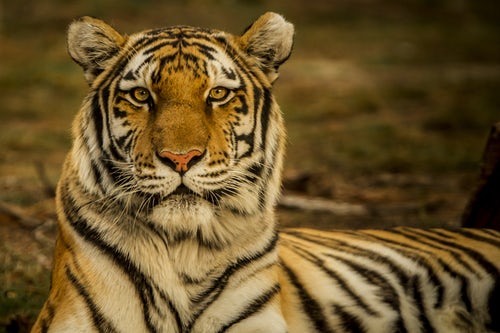News Release
09.07.2019
High demand of lions and tiger bones for medicine in the Asian markets is fueling suffering and killing of lions across Africa.
A research by World Animal Protection reveals that lions and tigers of all shapes and sizes around the world are being both poached from the wild. This is for their body parts and bones which are used in products believed to treat rheumatism, promote strength and increase sexual vigour. Some are used to make tiger bones wines and ointments.
Body parts, especially bones from big cats such as lions and tigers are used in traditional Asian medicine, found mainly in Asian countries such as China and Vietnam. Although there’s little to no robust evidence to suggest that these products have any medicinal value, worryingly, the demand for wildlife traditional Asian medicine is growing.
The factors contributing to this trend include: an increase in people with higher disposable incomes in regions where products are popular, a lucrative business thriving from the industry, and recently, the World Health Organisation (WHO) endorsement[1].
The report documents the suffering that these animals are subjected to, caged in tiny enclosures resembling industrial factory farms. In Asia, rows of bare and barren battery-style cells house hundreds of tigers as well as lions. In South Africa, lion cubs are seen pacing around crying, and in another image, a motionless lion cub so deformed that it has missing limbs because of inbreeding, can be seen.
According to Patrick Muinde a Research Manager at World Animal Protection, big cats, mainly lion cubs, are born into a life of exploitation. Some are snatched from their mothers in the wild, and many are born at breeding facilities. They start their lives on petting farms, then once juveniles, they are used for ‘walking with lions’ experiences. Their lives then take a deadly turn as they are moved to game farms for sport hunting. Skins and heads are taken as trophies, and bones are legally exported through the skeleton quota – unique to South Arica. The bones are exported to Asia to supplement the illegal trade of tiger bone products, where they are processed into medicines and wines.
“As the demand for traditional medicine and use of lions and tiger products continues to grow, in Asian markets, the numbers of African big cats will continue to plummet due to poaching of endangered wild big cats – all in the name of traditional Asian medicine whose efficacy has not been confirmed by modern science. This needs to stop.” Dr. Patrick Muinde, World Animal Protection.




